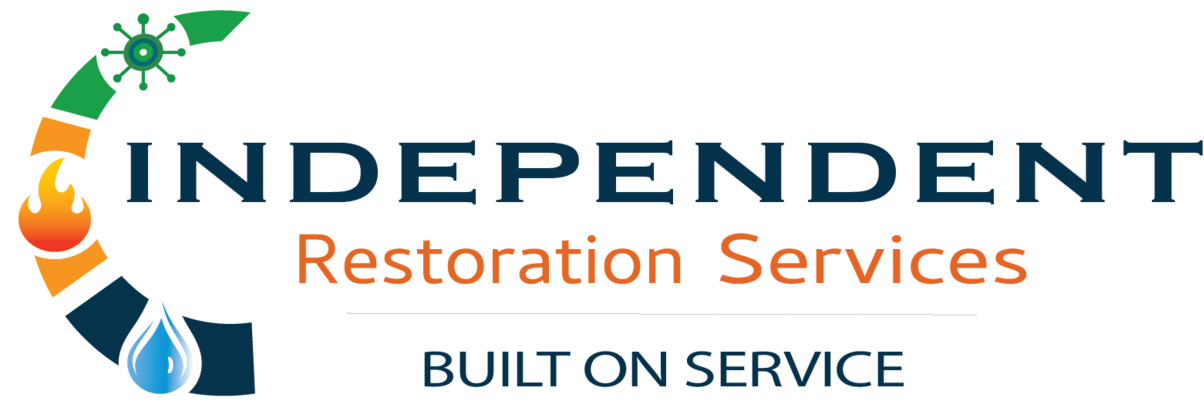A house fire is one of the most devastating experiences any Atlanta homeowner can face. Beyond the immediate trauma, the path to recovery involves complex restoration processes that require professional expertise and careful planning. Understanding what lies ahead can help you make informed decisions during this challenging time.
Table of Contents
Understanding Fire Damage Types in Atlanta Properties
Direct Fire Damage
- Structural burning to walls, ceilings, and support beams
- Content destruction of furniture, electronics, and personal items
- Flooring damage requiring complete replacement
Smoke Damage
Smoke damage often extends far beyond the fire’s origin:
- Soot penetration into porous materials
- Odor absorption in fabrics and building materials
- HVAC contamination spreading smoke throughout the property
Water Damage from Firefighting Efforts
Atlanta Fire Rescue’s suppression efforts can cause secondary damage:
- Flooding from fire hoses and sprinkler systems
- Moisture intrusion into unburned areas
- Mold risk in Georgia’s humid climate
The Professional Fire Damage Restoration Process
Phase 1: Emergency Response and Assessment (24-48 Hours)
Immediate Stabilization
- Property securing with board-up services
- Structural assessment by certified engineers
- Safety hazard identification including asbestos and lead concerns
Damage Documentation
Professional restoration teams document everything for insurance purposes:
- Detailed photography of all affected areas
- Content inventory of damaged and salvageable items
- Structural damage reports for insurance adjusters
Phase 2: Water Removal and Drying (Days 2-5)
Since Atlanta Fire Department uses significant water for suppression, water removal is crucial:
- Standing water extraction using industrial pumps
- Structural drying with commercial dehumidifiers
- Moisture monitoring to prevent mold growth in Georgia’s humidity
Phase 3: Smoke and Soot Cleanup (Days 3-10)
Specialized Cleaning Techniques
- Dry cleaning methods for light smoke residue
- Wet cleaning for moderate to heavy soot deposits
- Abrasive cleaning for stubborn smoke stains
- Immersion cleaning for heavily damaged contents
Odor Elimination
Smoke odors require professional treatment:
- Thermal fogging to neutralize odor molecules
- Ozone treatment for severe odor penetration
- Hydroxyl generators for safe, continuous odor elimination
Phase 4: Content Restoration and Cleaning (Days 5-14)
Salvageable Items Assessment
Professional restoration determines what can be saved:
- Electronics restoration using specialized cleaning
- Textile cleaning with dry cleaning or ozone treatment
- Document recovery through freeze-drying processes
- Art and antique restoration by specialized craftspeople
Pack-Out Services
Valuable items are often removed for specialized cleaning:
- Climate-controlled storage during restoration
- Inventory tracking for insurance purposes
- Professional cleaning at off-site facilities
Phase 5: Structural Repairs and Reconstruction (Weeks 2-8)
Structural Repairs
- Framing replacement for fire-damaged support structures
- Electrical system restoration meeting current Atlanta building codes
- Plumbing repairs if damaged by fire or suppression efforts
- HVAC cleaning and repair to remove smoke contamination
Interior Restoration
- Drywall replacement in smoke-damaged areas
- Flooring installation of hardwood, carpet, or tile
- Paint and finishing with odor-sealing primers
- Trim and millwork replacement or restoration
Working with Insurance After Fire Damage in Atlanta
Understanding Your Coverage
Georgia insurance policies typically cover:
- Dwelling coverage for structural repairs
- Personal property coverage for contents replacement
- Additional living expenses during restoration
- Debris removal and cleanup costs
Maximizing Your Insurance Claim
- Document everything with photos and detailed lists
- Keep receipts for temporary living expenses
- Work with professionals who understand insurance processes
- Don’t settle quickly without full damage assessment
Common Insurance Challenges
- Undervaluation of smoke and odor damage
- Coverage disputes over restoration vs. replacement
- Delayed payments affecting restoration timeline
- Depreciation issues with older Atlanta homes
Special Considerations for Atlanta Fire Damage
Historic Home Restoration
Many Atlanta neighborhoods feature historic properties requiring specialized restoration:
- Preservation guidelines for designated historic districts
- Matching materials to original construction methods
- Permit requirements through Atlanta’s planning department
- Specialized craftspeople familiar with period construction
Air Quality Concerns
Atlanta’s existing air quality issues make post-fire air purification crucial:
- HEPA filtration systems during restoration
- Air quality testing before reoccupancy
- Ongoing monitoring for sensitive family members
Preventing Future Fire Damage
Fire Safety Systems
- Smoke detector maintenance with regular battery changes
- Fire extinguisher placement in key areas
- Sprinkler system installation in high-risk areas
- Escape plan development and regular practice
Home Maintenance
- Electrical system inspections by licensed Atlanta electricians
- Chimney cleaning before each heating season
- Appliance maintenance to prevent electrical fires
- Landscaping management to reduce wildfire risk
Why Choose Professional Fire Damage Restoration in Atlanta
Expertise and Certification
Professional restoration companies bring essential qualifications:
- IICRC certification in fire and smoke restoration
- Insurance industry relationships for smoother claims
- Specialized equipment not available to general contractors
- Local code knowledge for Atlanta building requirements
Comprehensive Services
Full-service restoration eliminates coordination challenges:
- Emergency response available 24/7
- Complete restoration from cleanup to reconstruction
- Content restoration saving valuable possessions
- Project management coordinating all restoration phases
Recovery Timeline Expectations
Typical Atlanta Fire Damage Restoration Timeline
- Week 1: Emergency response, assessment, and stabilization
- Weeks 2-3: Water removal, cleaning, and content restoration
- Weeks 4-6: Structural repairs and major reconstruction
- Weeks 7-8: Finishing work and final inspections
Factors Affecting Timeline
- Damage severity and affected square footage
- Insurance claim processing speed
- Material availability and supply chain issues
- Weather conditions affecting drying and construction
Moving Forward After Fire Damage
Fire damage restoration is a complex process requiring professional expertise, especially in Atlanta’s unique climate and regulatory environment. Independent Restoration Services understands the emotional and logistical challenges you face. Our certified team provides comprehensive fire damage restoration services, from emergency response through complete reconstruction.
Don’t navigate fire damage recovery alone. Contact Independent Restoration Services for expert fire damage restoration that restores not just your property, but your peace of mind.
